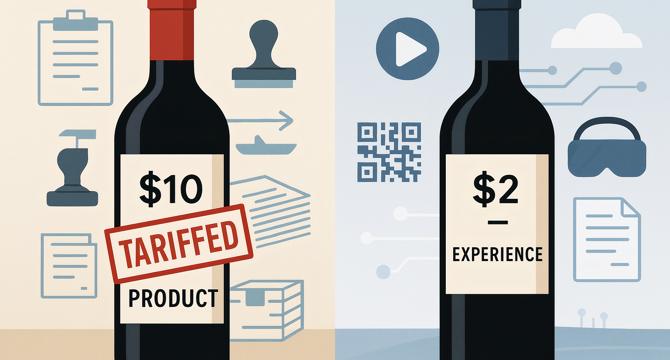Fueled
4w
195

Image Credit: Fueled
How European Winemakers Can Beat a 200% U.S. Tariff—Legally and Creatively
- European winemakers facing a 200% U.S. tariff are exploring creative solutions to navigate the challenging market conditions.
- One proposed approach involves restructuring wine sales by separating the bottle price from brand licensing and digital experiences, a strategy already utilized by industries like Big Tech and pharma.
- Companies like Apple and IKEA have mastered the art of dividing value to minimize tax burdens and maximize profit.
- The idea is to treat wine more as a service than a product to circumvent tariffs on physical goods by licensing brand and experience separately.
- This approach involves selling the physical bottle at a lower declared value, while charging for brand rights and digital experiences separately.
- By decoupling the pricing components, winemakers can potentially mitigate the impact of tariffs on their products.
- The model envisions wine as a membership experience, where each bottle offers access to a curated world of content related to the vineyard and winemaking process.
- Implementing this restructuring requires coordination, legal guidance, and a shift in marketing strategies, but it could offer a way for winemakers to evolve into luxury brand owners.
- While the traditional wine industry may be rooted in tradition, adapting to new business models could provide a path to sustainability and growth amidst evolving market challenges.
- By reframing wine as a platform for storytelling and connection, winemakers can potentially create a more resilient and consumer-engaging business model.
- Embracing innovation in pricing and marketing strategies could help winemakers reinvent their businesses to withstand market disruptions and enhance profitability.
Read Full Article
11 Likes
For uninterrupted reading, download the app